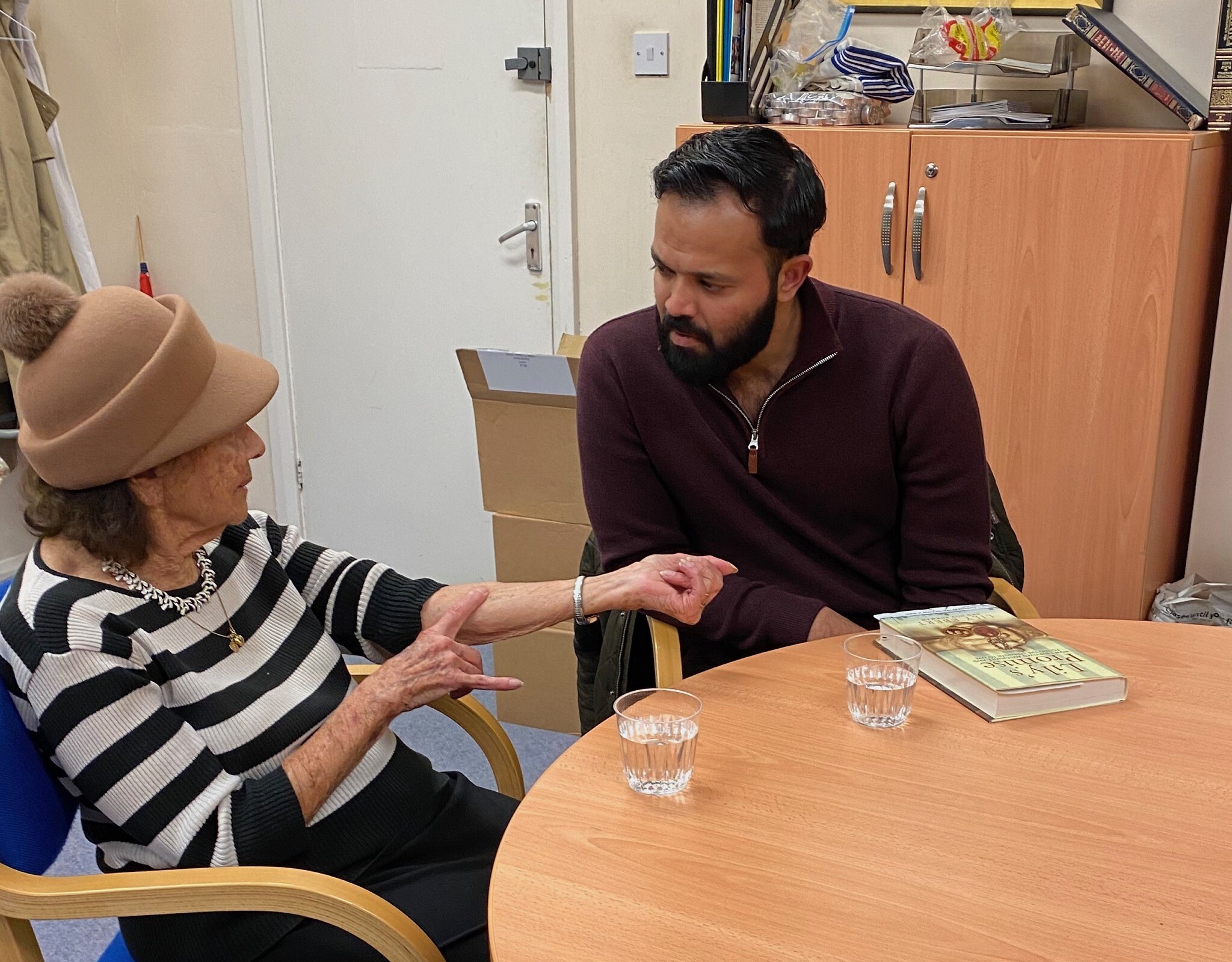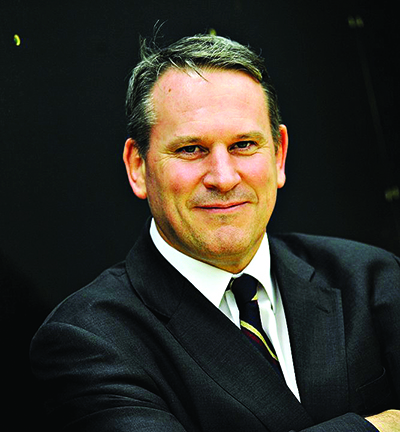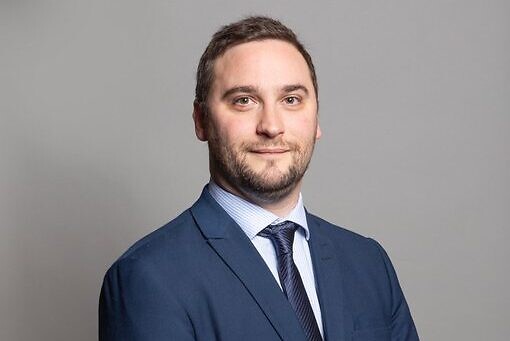A place that still defies articulation
Jewish News joined British survivors Arek Hersh, Eve Kugler, Harry Olmer, Mala Tribich, Alfred Garwood, Agnes Kaposi and Barbara Frankess as March of the Living returned.
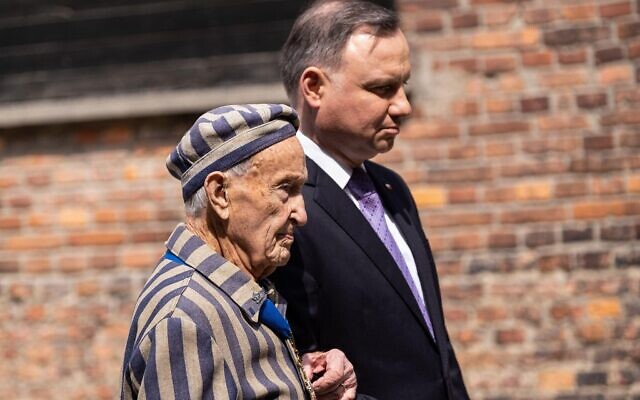
The phrases ‘man’s inhumanity to man’ and ‘never again’ have become so well used, so commonplace, when it comes to talking about the enormity of the crimes of the Holocaust that they have sadly become practically cliche.
At the same time, people want to appropriate the Holocaust. Everything – from vaccine passports to voter identification to the trans row – has become ‘just like what happened to the Jews’.
But when walk around Auschwitz and its subcamp Birkenau where evil pours out of every crevice, you realise there simply are no words big enough, dark enough, cruel enough in the English language to describe what the Nazis did to the Jewish nation. No books fully describe the vastness of the horror. Films can only sanitise it because no one would want to watch the grinding torment. And the number 6million is simply too vast to contemplate.
In this place 1.1million Jews were murdered at a rate that went up to nearly 10,000 people a day. Others were killed here too; around 140,000 Poles, 23,000 Roma, 15,000 Soviet prisoners of war, and 25,000 people from other ethnic groups but it is Jews who consumed the Nazis. Auschwitz is a mass grave; a place of genocide.
The trauma when you walk around it comes from the almost mundane aspects of humanity. It’s seeing the mountains of hair, the piles of shoes, their hopeful suitcases which loudly proclaim their names because they were told they would be reunited with their things, which gives just a small taste of the enormity of what was done. All those lives lost.
There’s the video footage of life before; football games and Shabbat candle lighting. It’s the pots and pans they hoped to cook with, the clothes they packed, the crutches they limped off the cattle trains with; they all show the imprint of humans who weren’t a page out of history but were loved and loved back. And murdered.
It’s the pots and pans they hoped to cook with, the clothes they packed, the crutches they limped off the cattle trains with; they all show the imprint of humans who weren’t a page out of history but were loved and loved back. And were murdered.
The March of the Living was set up in 1988 by Israelis when it became clear that a new form of antisemitism – Holocaust denial – was coming to the foreground while the old forms seemed to be re-emerging just dressed up in new clothes. Groups from around the world were invited to the death camp Auschwitz to fully learn the truth and to teach others about what they had seen.
In 2010 Scott Saunders decided to start a British contingent, motivated by the coincidence of sitting in a Tokyo shul next to a man who was saved by a righteous gentile, former Japanese diplomat Chiune Sugihara who gave 3,500 visas to Lithuanian Jews. He started meeting Holocaust survivors and realised others needed to meet them too, to hear their stories.
The programme he and his organisation, March for the Living UK, devised is an intense, difficult but rewarding four-day immersion not only into the Holocaust but also the history of Jews in Poland, a land which once they once regarded a safe place.
This year there were 250 Brits of all ages, all religions. Doing the tour becomes an incredibly bonding experience.
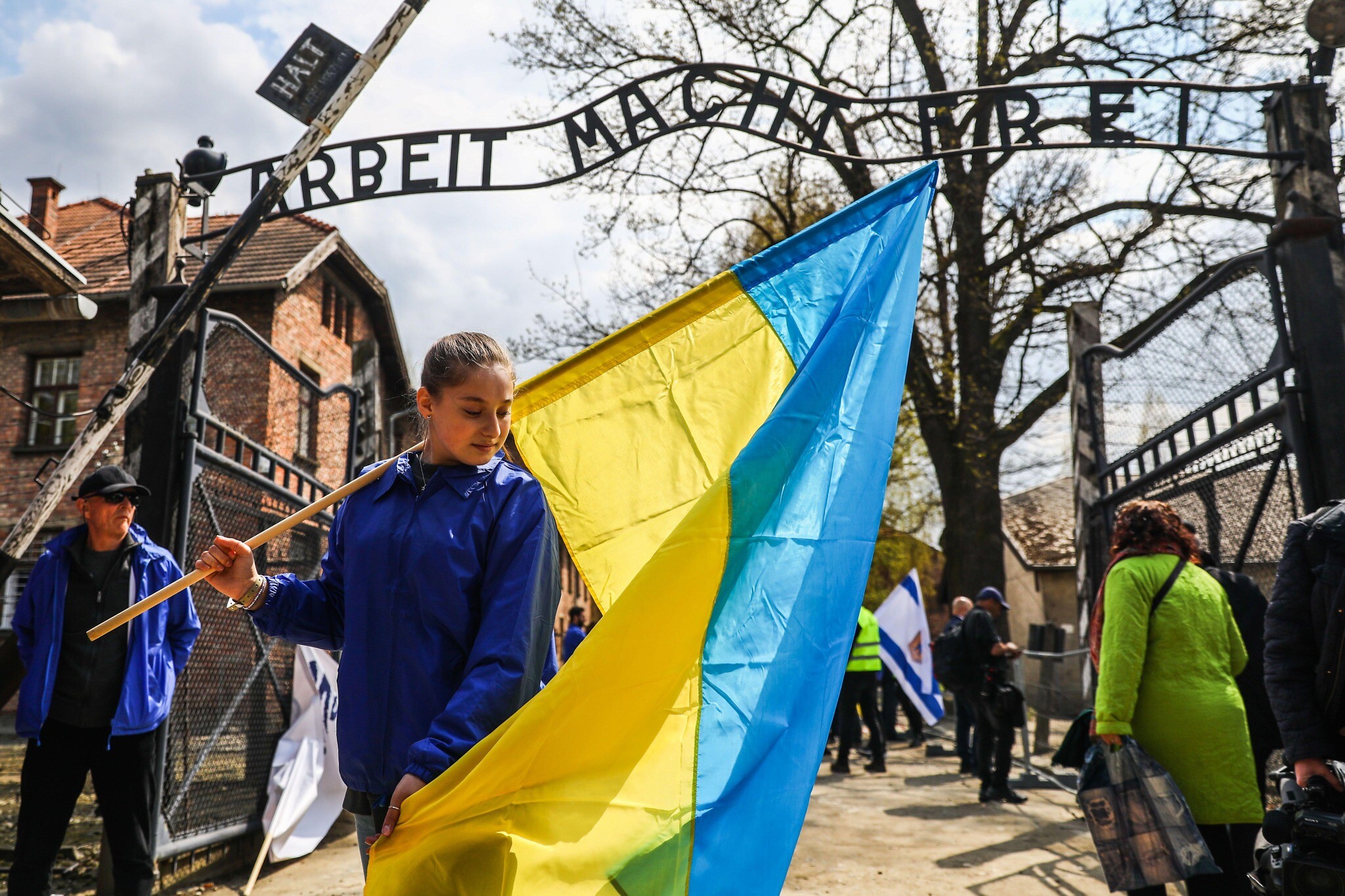
There are trips to Warsaw and Treblinka. The fourth day is a visit to Auschwitz. First, we visited Birkenau where we learned the mechanics of industrialised murder. Just like building a car; this was a finely tuned operation from the music playing as the exhausted and starving Jews of Europe arrived to the tickets people were given when they gave up their clothes so they could ‘get them back’ before they were led to the gas chamber.
In each room, as the horror builds, another member of the bus I am on has sobs and has to be comforted. There is still something shocking about seeing a man cry helplessly from a pain he can’t articulate because there are no words. Our guide sits us in a side room and reminds us to breath as we say the mourner’s prayer together.
I’m on a bus mainly populated by Jews for us it feels personal. There’s another – ‘the holy bus’s which is interfaith and includes cricketer Azeem Rafiq who pledged to educated himself after being found in antisemitism storm – but everyone is moved immeasurably because this is about human behaviour being done to other humans.
There is still something shocking about seeing a man cry helplessly from a pain he can’t articulate because there are no words.
The next day is the march, an inversion of the death marches out of Auschwitz when, in order to flee the Russians and not leave a Jew alive, the Nazis marched 56,000 prisoners, already weak from hunger to march 60kilometres in freezing conditions. Around 15,000 of them perished on the journey.
In some ways this is a kind of two fingers up to the Nazis. The tried to kill European Jewry but here we were in our thousands – around 3000 altogether, a small contingent than normal because of the uncertainty around the pandemic – singing Jewish songs; alive, healthy, happy. They stole and burned the prayer shawls but here we all were in blue, many wearing the Israeli flag which is based on the tallit, proudly.
They were joined by MPs and celebrities, people who care and people who were keen to learn. There are also new signs of hope; for the first time there was a large contingent of Muslims including a chapter from the UAE led by H.E. Ahmed Obaid Al Mansoori, founder of the first Holocaust memorial gallery in the Arabic world. There were also Ukrainian refugees; the latest victims of the misery and murder on European soil.
But at the centre of it, most precious of all, were the British contingent’s Holocaust survivors, seven of them. Arek Hersh, Eve Kugler, Harry Olmer, Mala Tribich, Alfred Garwood, Agnes Kaposi and Barbara Frankess; all here to relive their stories because they know they must.
There is a proudness, a defiance to the occasion, but also an untouchable sadness. It would be better if we did not need to be here but as long as the Holocaust denial and antisemitism continues, we must continue to tell this story about what hatred of Jews leads to.
—
Colonel Richard Kemp, who commanded the British forces in Afghanistan
‘This is my third time coming to Auschwitz and coming with a Jewish group is a very different type of experience because you are with people who have lost sometimes huge numbers of their family. I think the march is the most appropriate reaction to it. This is the victory, the triumph of good versus evil, and it was an evil that had never really been experienced in the human race before. The last thing Adolf Hitler and Heinrich Himmler would like to have seen was Jewish people not only surviving but thriving.’
Eyal Booker
Jewish reality star and influencer
“Last year I met the survivor Mala Tribich and it was very special to reunite with her on the march. When you see those famous Auschwitz gates saying ‘arbecht matt frei’ – work makes you free – you don’t really understand what really happened until you get here. How methodical and calculated the Nazis were in the process of deceiving the Jewish people in order to murder them. The idea of having an orchestra playing as they were being led into the gas chambers.
It felt incredible eerie walking around. In some ways it felt wrong. This is where more than 1million people died and yet here I was, alive and walking through a museum. It felt quite uncomfortable.
Seeing the hair of the thousands and thousands of people, knowing they were experimented on. It was harrowing.
As the march I struggled with knowing how to feel. It is meant to be sad but people were also talking and singing. This was a celebration that we were alive and free but there was a really sad, morbid undertone that so many people, millions of people, had to die in order for us to be able to walk that journey freely.”
Christian Wakeford, Labour MP for Bury South
“At a time of rising antisemitism is important that we do carry that torch on, that we ensure something like this never happens again. It has been an incredibly moving and harrowing few days, and also something that it was a privilege to be part of.”

Thank you for helping to make Jewish News the leading source of news and opinion for the UK Jewish community. Today we're asking for your invaluable help to continue putting our community first in everything we do.
For as little as £5 a month you can help sustain the vital work we do in celebrating and standing up for Jewish life in Britain.
Jewish News holds our community together and keeps us connected. Like a synagogue, it’s where people turn to feel part of something bigger. It also proudly shows the rest of Britain the vibrancy and rich culture of modern Jewish life.
You can make a quick and easy one-off or monthly contribution of £5, £10, £20 or any other sum you’re comfortable with.
100% of your donation will help us continue celebrating our community, in all its dynamic diversity...
Engaging
Being a community platform means so much more than producing a newspaper and website. One of our proudest roles is media partnering with our invaluable charities to amplify the outstanding work they do to help us all.
Celebrating
There’s no shortage of oys in the world but Jewish News takes every opportunity to celebrate the joys too, through projects like Night of Heroes, 40 Under 40 and other compelling countdowns that make the community kvell with pride.
Pioneering
In the first collaboration between media outlets from different faiths, Jewish News worked with British Muslim TV and Church Times to produce a list of young activists leading the way on interfaith understanding.
Campaigning
Royal Mail issued a stamp honouring Holocaust hero Sir Nicholas Winton after a Jewish News campaign attracted more than 100,000 backers. Jewish Newsalso produces special editions of the paper highlighting pressing issues including mental health and Holocaust remembrance.
Easy access
In an age when news is readily accessible, Jewish News provides high-quality content free online and offline, removing any financial barriers to connecting people.
Voice of our community to wider society
The Jewish News team regularly appears on TV, radio and on the pages of the national press to comment on stories about the Jewish community. Easy access to the paper on the streets of London also means Jewish News provides an invaluable window into the community for the country at large.
We hope you agree all this is worth preserving.



